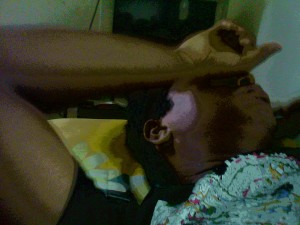 Addiction is a general term used to describe behaviors associated with a craving or compulsion that is uncontrollable and is causing problems in a person’s life. Addictions can be related to almost any kind of behavior or substance: food, shopping, alcohol, sex, drugs, gambling, television and so on.
Addiction is a general term used to describe behaviors associated with a craving or compulsion that is uncontrollable and is causing problems in a person’s life. Addictions can be related to almost any kind of behavior or substance: food, shopping, alcohol, sex, drugs, gambling, television and so on.
Addiction knows no demographic – it is pervasive across all socio-economic classes. Most people with addictions are employed, with families and homes. In Vancouver there are an estimated 95,000 individuals struggling with alcohol or drug abuse or addiction. The face of addiction is the face of anyone.
Research has shown that addiction is a disorder of the brain. An addicted person produces low levels of the neurotransmitter dopamine in their brain. Dopamine is responsible for regulating the brain’s reward and pleasure centres, so not having enough effects people in negative ways. Deficiencies in dopamine cause anxiety, depression, irritability and anger. Often, at a young age, people with dopamine deficiencies discover ways to experience “reward” and “pleasure” (elevate their dopamine levels) externally. Alcohol, drugs and risky or gratifying behaviors (gambling, gaming, pornography, eating disorders) create spikes of dopamine in the brain while the activity is anticipated and while it is happening.
Herein lies the problem: when the brain is bathed in dopamine from an external source (addictive behaviour), it gets the message that it needs to cut down it’s own production. So, when the addictive gratification wears off, there is a further depletion of dopamine, leaving the person in greater need than when they started. The addictive cycle is born.
Other areas of the brain involved in the formation and maintenance of addictive behaviors are those that regulate impulsivity and motivation. Many people with impulsivity control problems turn to substances to “self-medicate” and help deal with stress. When a person experiences undesirable or uncomfortable emotions, they may wish to be clean and healthy, but their impulse control is low, and their command of motivation to withstand the discomfort is low: so it becomes extremely difficult NOT to use drugs, alcohol and other behaviors to replenish the dopamine deficiency in the brain (get the “hit” they crave).
Despite the physiological challenges, it is possible to overcome addiction. It takes commitment and daily practice of overriding the brain’s dysregulated circuitry. Addiction to anything is generally not a condition a person can change on their own. A 12-step program is the gold-standard for dealing with addiction precisely because it creates a structure strong enough to override the brain’s faulty messages. People need help from others to overcome their addictive cravings and compulsions. Addiction counselling can help to connect the person with emotional and thought alternatives when they experience cravings.
If you are concerned for someone you care about, here are some numbers you can call:
